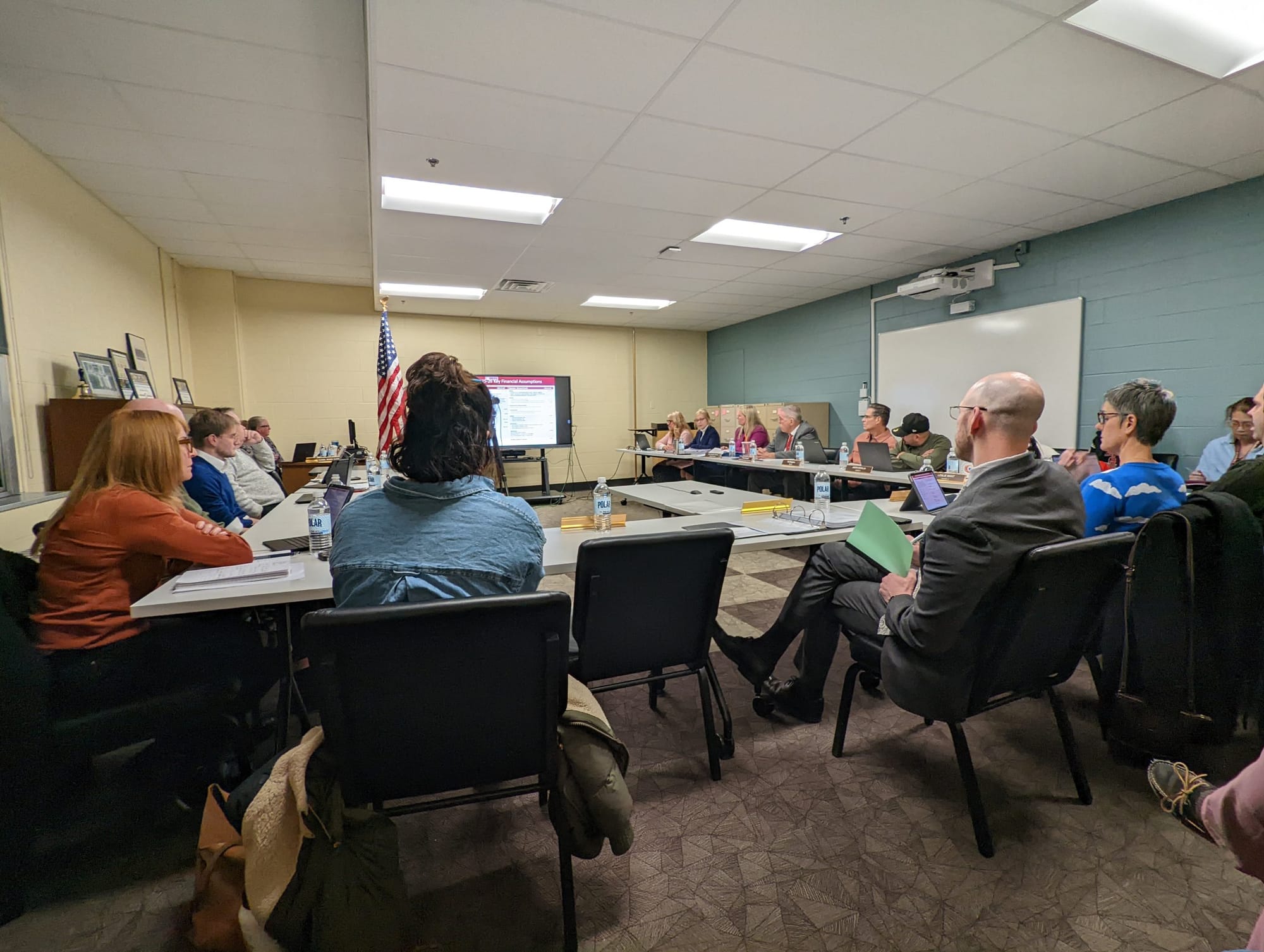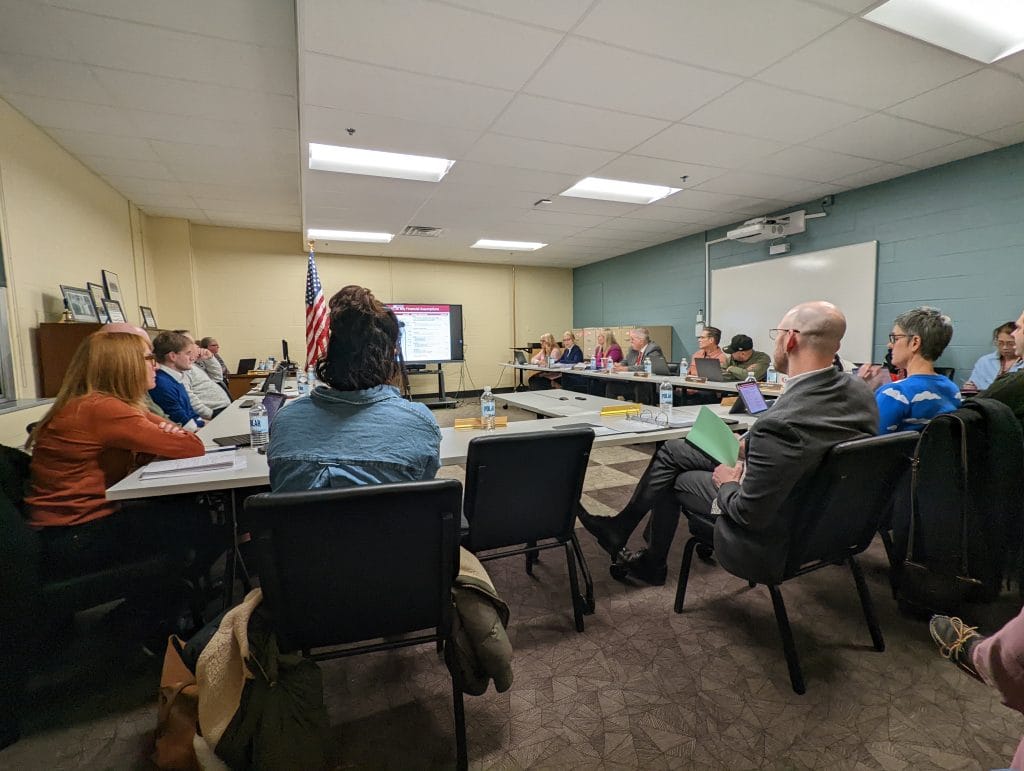School Board recommends $246 million FY’ 26 budget
Due to a rescheduled Planning Board meeting, the Manchester Board of School Committee met at the Manchester School District offices on Thursday night. There, they recommended a proposed Fiscal Year 2026 Manchester School District budget of $246,050,206.


MANCHESTER, N.H. – Due to a rescheduled Planning Board meeting, the Manchester Board of School Committee met at the Manchester School District offices on Thursday night. There, they recommended a proposed Fiscal Year 2026 Manchester School District budget of $246,050,206.
That figure was calculated to meet the ceiling of the city’s tax cap, a three-year average percentage of the U.S. Bureau of Labor Statistics’ consumer price index, or CPI. Any proposed increase above that percentage in the city or school district’s general budget revenues or expenditures requires a ten-vote supermajority from the Manchester Board of Mayor and Aldermen. For this fiscal year, that percentage is 4.27%, which is placed on top of the amended final FY’ 25 budget announced in the fall after the district learned it would be receiving significantly more adequate education aid from the state than expected. The 4.27% increase comes to approximately $5 million extra dollars that can be raised through taxes this fiscal year, with an additional approximate $6 million coming from other sources to reach the proposed FY’ 26 figure.
Among Board of School Committee members, that $246,050,206 figure fit a recurring theme when it comes to school budget season in Manchester: that number does not adequately reflect what the school district truly needs to give its students an adequate education.
Ward 4 Board of School Committee Member Leslie Want recommended that the school district should also develop a “needs budget,” or a budget that focuses on what the board believes is necessary to properly fund the district rather than a budget that does not exceed the tax cap.
When asked, Manchester School District Superintendent Dr. Jennifer Chmiel said that in order for Manchester’s per-pupil spending to reach state averages, another $40 million would be needed. Board of School Committee Vice Chair Jim O’Connell said that figure should be even higher since Manchester is not an average school district in the state, educating far more students with unique needs than any other district in New Hampshire.
Ward 9 Board of School Committee Member Bob Baines understood this desire, but also noted the amount of progress had made in slowly closing that gap between the district’s actual spending and its recommended spending, recalling a time decades ago when school budgets did not allow for the purchase of basic items such as paper.
Baines agreed that the board should present a list of items on that needs budget to the Manchester Board of Mayor and Aldermen, which will approve the final bottom line for the budget, but understand that the Board of Mayor and Aldermen also have their own budgetary limitations and political realities when it comes to listening to the concerns of the city’s taxpayers.
Manchester Mayor Jay Ruais struck a similar chord and went further in saying that staying within the tax cap is not a political matter but just a fact of reality given that the city government’s recent compensation study revealed that city employees will need raises to reach salaries competitive with other municipalities and other expected expenditures like an additional $12 million in road repair will also need to be added in this year’s city budget, leaving little more that can be given to the schools.
In turn, O’Connell understood these concerns as well, but he hopes that the Aldermen can reward the school district for their efforts that found $3 million in cost savings from last year, most notably in the creation of a new in-district transportation division and efforts to recruit specialist educators such as paraprofessionals internally rather than rely on costly outside contractors.
In the recommendation vote, the board also recommended a School Food and Nutrition Budget of $6,300,000. Last month it also acted in support of seven FY’ 26 Capital Improvement Plan projects totaling $6,600,000.





